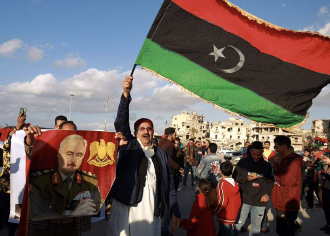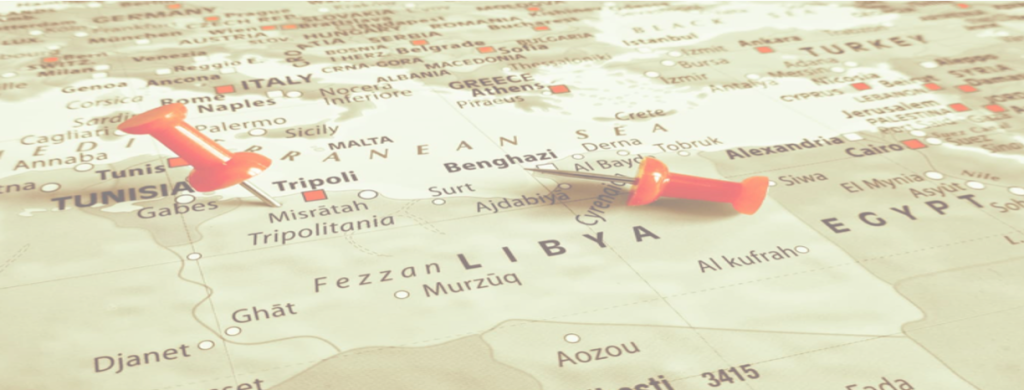
Weekly Highlights
- Head of NCDC warns that Covid-19 situation in Libya is worsening
- Libya urged to search for mass graves in Tarhuna
- Serraj government’s catastrophic failure to reform Libya’s healthcare: Analysis
- NOC and GECOL to increase the use of renewable energy
- NCHRL: In excess of 11,000 migrants returned to Libya having been rescued at sea
- Currency Exchange:
- Bank exchange rate: USD 1 – LYD 4.4506
- Black market exchange rate: USD 1 – LYD 5.30
EXECUTIVE SUMMARY
Head of NCDC warns that Covid-19 situation in Libya is worsening
Head of the National Center for Disease Control (NCDC) Bader Al-Din Al-Najjar, expressed his concern for the continued deteriorating efforts in Libya when it comes to battling the Coronavirus pandemic. “The continuing high number of people infected with the new Coronavirus will make it difficult for the country to absorb them into isolation centres, which are almost entirely unable to provide the necessary care to patients due to massive overcrowding.” He also added that there has been a noticeable delay in establishing new isolation centres to accommodate more infected cases, stressing that the increase in cases is too fast and widespread for the NCDC to keep track of and accommodate. Al-Najjar pointed out that in light of cases in Libya crossing the threshold of 100,000 cases the severity of the situation in Libya is increasing rapidly and the situation is becoming more dangerous by the day. LIBYAN EXPRESS
Libya urged to search for mass graves in Tarhuna
Libya’s United Nations-backed government was urged on Thursday to investigate the deaths of hundreds of people in Tarhuna, an agricultural town 45 miles southeast of the Libyan capital, which a family of lion owning brothers controlled, Human Rights Watch reports. Hundreds of the town’s residents were abducted or reported missing between 2014 and 2020, HRW said. “Families in Tarhouna whose loved ones went missing face a difficult time moving forward with their lives,” said Hanan Salah, senior Libya researcher at Human Rights Watch. At least 338 residents of Tarhuna were reported missing after the local Al-Kani militia, known as Kaniyat, took control of the town in 2015. MEMO
Serraj government’s catastrophic failure to reform Libya’s healthcare: Analysis
The revelation of the failure of Tripoli University Hospital (TUH) to provide healthcare to its patients during 06 Jan press conference by its head, Nabil Alageli, is a scathing indictment and personal slap in the face for Faiez Serraj, as well as his interim government. The TUH is the largest operating medical centre in Libya dealing with the most medical cases and covering a wide area in north west Libya. It will be recalled that Alageli was appointed by Serraj as the new head of the reformed and improved TUH. The British trained doctor was to reform and transfer the flagship hospital as part of the wider reform of the health sector by the Serraj government. LIBYA HERALD
NOC and GECOL to increase the use of renewable energy
Head of the national oil cooperation Mustafa Sanalla met with the head of General Electricity Company of Libya (GECOL) Weam Al-Abdali in the NOC’s headquarters to discuss ways of cooperation between their respective companies and the future of renewable energy in Libya. The meeting addressed supplying electricity plants across the country with natural gas to ensure the continuation of its working and elimination of the power outages, it also discussed the difficulties and problems that hinder supply operations and the negative impact of the security situation and the scarcity of budgets on the completion of development projects for both sides. LIBYAN EXPRESS
NCHRL: In excess of 11,000 migrants returned to Libya having been rescued at sea
The National Commission for Human Rights in Libya (NCHRL) announced that the number of refugees and migrants rescued at sea and returned to Libya during the year 2020 reached 11891. The NCHRL confirmed that the number of migrants and asylum seekers evacuated from Libya during this year has reached 811, which includes the resettlement of 321 individuals. It is noted that there are 44,725 migrants and asylum seekers registered with the United Nations High Commissioner for Refugees (UNHCR), pointing out that more than 300 migrants and refugees lost their lives whilst trying to cross the Mediterranean from Libya to Europe in the year 2020. LIBYA OBSERVER
USEFUL INFORMATION
List of holidays in Libya 2021
| Date | Day | Name | Type |
| 17 Feb | Wednesday | Libyan Revolution Day | Public Holiday |
| 1 May | Saturday | May Day | Public Holiday |
| 13 May | Thursday | Eid al-Fitr | Public Holiday |
| 14 May | Friday | Eid al-Fitr Holiday | Public Holiday |
| 15 May | Saturday | Eid al-Fitr Holiday | Public Holiday |
| 19 Jul | Monday | Day of Arafah | Public Holiday |
| 20 Jul | Tuesday | Eid al-Adha | Public Holiday |
| 21 Jul | Wednesday | Eid al-Adha | Public Holiday |
| 22 Jul | Thursday | Eid al-Adha | Public Holiday |
| 10 Aug | Tuesday | Muharram | Public Holiday |
| 16 Sep | Thursday | Martyrs’ Day | Public Holiday |
| 19 Oct | Tuesday | The Prophet’s Birthday | Public Holiday |
| 23 Oct | Saturday | Liberation Day | Public Holiday |
| 24 Dec | Friday | Independence Day | Public Holiday |
Exchange rates – Libyan Dinar
According to our most recent information (07th & 11th January 2021) the Libyan Dinar has the following exchange rates.
The exchange rate from your own bank or credit card company will differ somewhat from the exchange rates as mentioned above. Your bank or credit card company might also apply additional international charges.

LIBYA SECURITY & RISK LEVELS

Do not travel to Libya due to COVID-19, crime, terrorism, civil unrest, kidnapping, and armed conflict.
Crime levels in Libya remain high, including the threat of kidnapping for ransom. Westerners and U.S. citizens have been targets of these crimes.
Terrorist groups continue plotting attacks in Libya. Violent extremist activity in Libya remains high, and extremist groups have made threats against citizens. Terrorists may attack with little or no warning, targeting tourist locations, hotels, transportation hubs, markets/shopping malls, and government facilities.
Outbreaks of violence between competing armed groups can occur with little warning and have the potential to impact citizens. The capital, Tripoli, and other cities, such as Surman, Al-Jufra, Misrata, Ajdabiya, Benghazi, Sabha, and Dernah, have witnessed fighting among armed groups, as well as terrorist attacks. Hotels and airports frequented by Westerners have been the targets of these attacks. Even demonstrations intended to be peaceful can turn confrontational and escalate into violence.
For the latest advice from the Libyan government, please visit the National Centre of Disease Control (NCDC) webpage at ncdc.org.ly/Ar/
If you decide to travel to Libya:
- Carry proof of citizenship and valid immigration status at all times.
- Avoid demonstrations and crowds.
- Make contingency plans to leave.
- Establish your own personal security plan in coordination with your employer or host organisation or consider consulting with a professional security organization.
- Develop a communication plan with family and/or your employer or host organization.

LIBYA INCIDENT MAPPING: 05 – 12 JANUARY 21
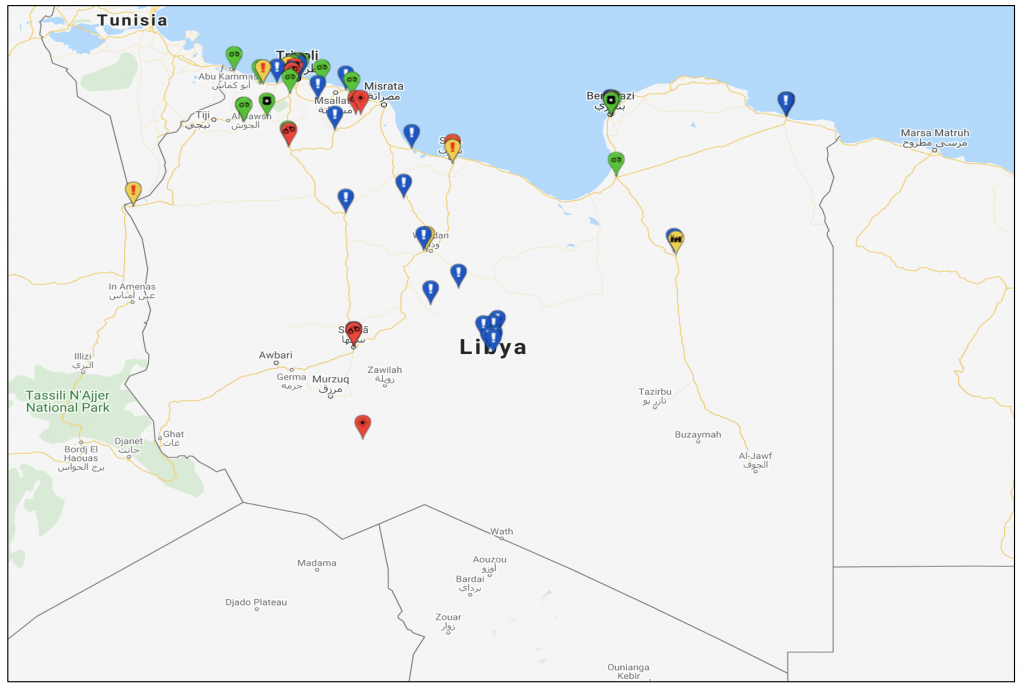
LIBYA – SIGNIFICANT INCIDENTS IN DETAIL
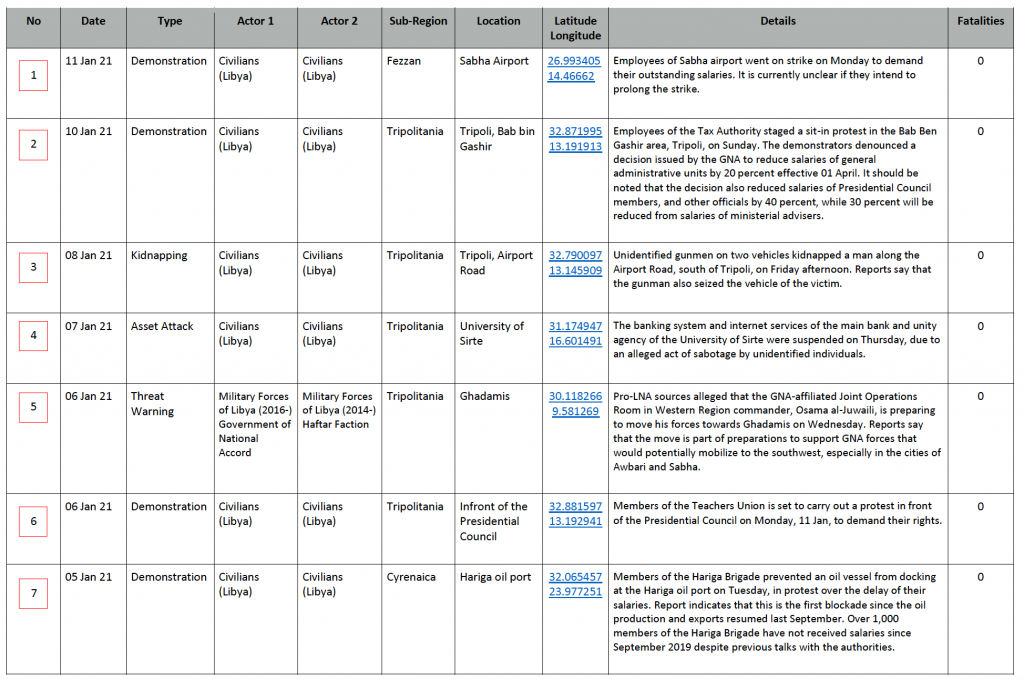
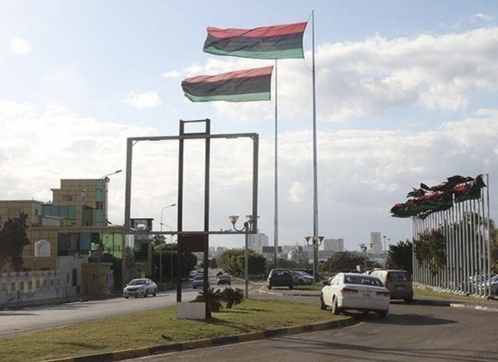
UN says foresees deployment of Libya truce monitors
The UN Support Mission in Libya (UNSMIL) said 09 Jan it foresees the deployment of a limited number of international monitors to ensure the implementation of the cease-fire between Libya’s warring rivals.
In a statement, the UNSMIL said a meeting was held by the co-chairs of the Security Work Council to discuss the security situation in Libya and ways to support the work of the 5+5 Joint Military Commission. The statement called on Libya’s rivals to accelerate the implementation of the cease-fire and the immediate repatriation of all foreign fighters and mercenaries. “The Mission reaffirms that it foresees the deployment of a limited number of impartial, unarmed, non-uniformed, international monitors, to complement the Libyan monitors deployed by the 5+5 Joint Military Commission,” it said.
On Oct. 23, the UN announced a permanent cease-fire agreement between Libya’s warring rivals during 5+5 Libyan Joint Military Commission talks in Geneva. The Joint Military Committee includes five members from the Tripoli-based internationally recognized government and five from the camp of eastern Khalifa Haftar.
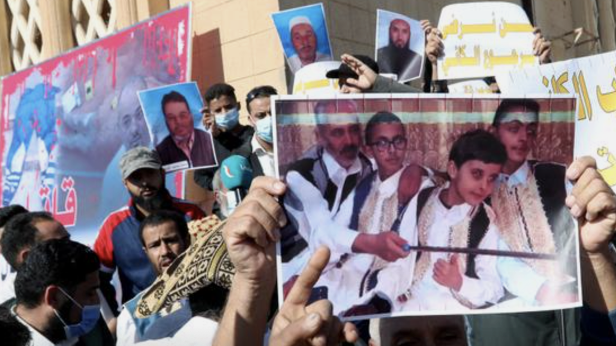
The Libyan brothers who kept lions as pets and unleashed terror
The Kani brothers took advantage of Libya’s power vacuum and terrorised the town of Tarhuna with mindless butchery. In the Libyan town of Tarhuna, a family found opportunity in chaos as the 2011 revolution toppled the country’s long-time leader Moammer Gaddafi. It started off with seven siblings, known as the Kani brothers. They ruthlessly began assassinating individuals and wiping out families to enhance their power in the town. In public, they proudly intimidated people with heavy weapons they had amassed over the years, as well as pet lions that were rumoured to have been fed with the flesh of their victims.
Nine years after the revolution, Tarhuna citizens finally began to come out of the terrifying shadow of these brothers when the UN-recognised Government of National Accord (GNA) recaptured the town with the military support of Turkey in early June last year, a report says.
Since then, GNA officials have discovered 27 mass graves with several dozen victims inside. They are yet to be identified. The unidentified bodies comprise men, women and children. Many of them bear the obvious signs of torture. At first, it was a mix of revenge and thirst for power that triggered the Kani brothers to launch this undisguised butchery in the town. The youngest sibling, Ali al Kani, was the only brother who supported the 2011 revolution, but he was assassinated by a clan named Na’ajaa.
REGIONAL REPORTED INCIDENT NUMBERS: 05 – 12 JANUARY 21
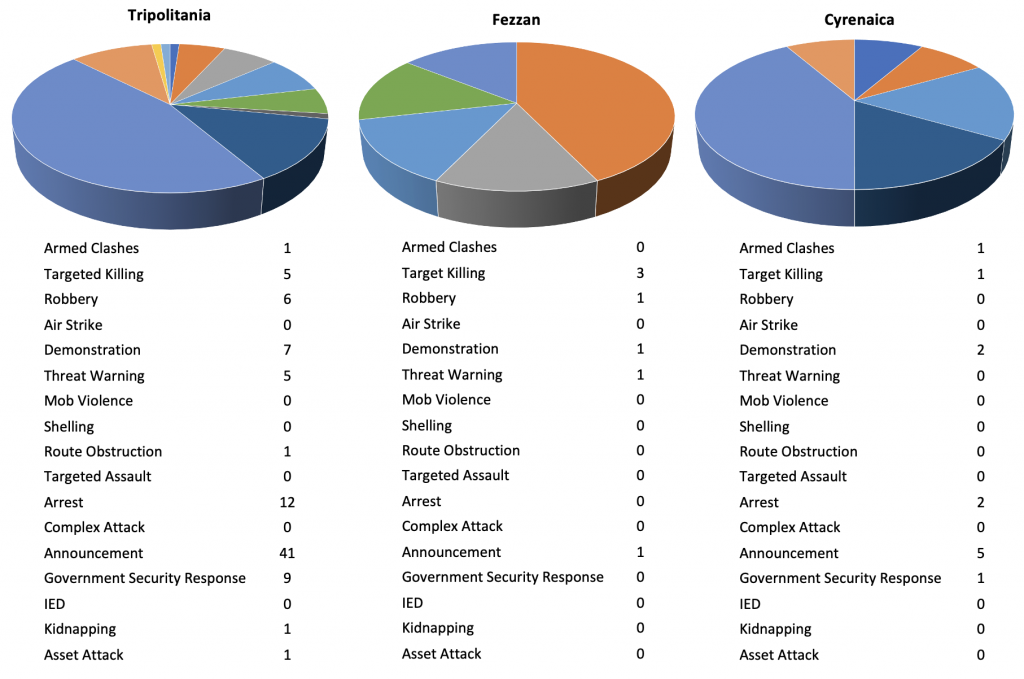
POLITICAL OVERVIEW

Chairman of the Presidential Council, Fayez al-Sarraj, discussed at his residence, in the Italian capital, Rome, with the US Ambassador to Libya, Richard Norland, the latest developing situation in Libya. According to al- Sarraj’s media office, the meeting highlighted the progress achieved in the path of negotiations, including the military-security track and the political and economic tracks. The two sides stressed it is necessary to end all external adverse intervention in the Libyan affairs, to bring to affect the desired goals. LIBYA OBSERVER
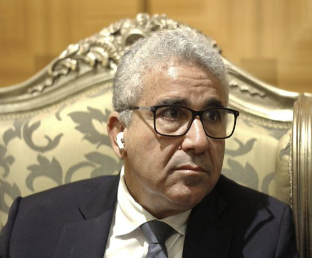
Libya’s Interior Minister Fathi Bashagha has expressed hopes that bringing stability to his war-torn country would become a top priority for the incoming Biden administration in the US. The powerful minister of the interior in Government of National Accord (GNA) also announced an upcoming major offensive by his Turkey-backed GNA forces in the country’s west to go after militants and human traffickers and invited the United States to assist. “Our hopes were greatly lifted” by Joe Biden’s election victory, Fathi Bashagha told The Associated Press earlier this week. THE ARAB WEEKLY
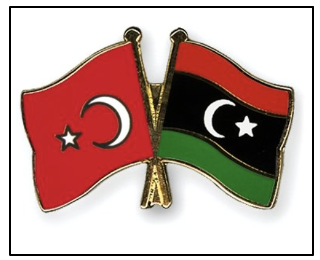
Libya’s internationally recognized government based in Tripoli discussed with Turkey’s ambassador completing the protocol signed between the two countries for outstanding and unfinished projects, Tripoli-based state news agency LANA reported yesterday. The discussion took place during a meeting between Presidential Council Member, Mohamed Amari Zayed, and Turkish Ambassador Serhat Aksen, in Tripoli yesterday. Obstacles facing the implementation of the protocol were also discussed. The Turkish Ambassador reviewed projects carried out by Turkish companies in the field of energy to increase the capacity of power plants. LIBYA HERALD
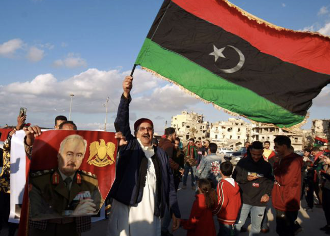
Anger has been boiling in the Libyan south-eastern region that includes the cities of Sirte, Ajdabiya up to Kufra, an area that was called Cyrenaica Elbeida (White Cyrenaica) during the reign of the late King Idris al-Senussi. Prominent figures from the region have issued two statements in less than a month calling for the need for their region to be represented in Libya’s political negotiations. They have also expressed their support for a proposal for a mechanism to select a new executive authority, favouring the selection of Abdulhamid al-Dabaiba for the presidency of government and Abdul Jawad al-Ubaidi to head the Presidency Council. THE ARAB WEEKLY
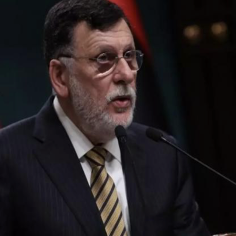
Libya has witnessed a flurry of developments in recent days, capped on Thursday with Government of National Accord (GNA) chief Fayez al-Sarraj’s surprise visit to Rome – his second in a month. Italian media noted that the two-day visit was supposed to have been a formal trip. Sarraj was then expected to then travel to Turkey, a main backer of the GNA. A delegation of his senior military officials had arriving in Turkey before him for expanded security talks. It includes Defense Minister Salah al-Namroush, Interior Minister Fathi Bashagha, High Council of State chief Khalid al-Mishri, head of the intelligence agency Emad al-Trabulsi, and 16 militia leaders. AAWSAT
AIRPORTS & BORDERS STATUS
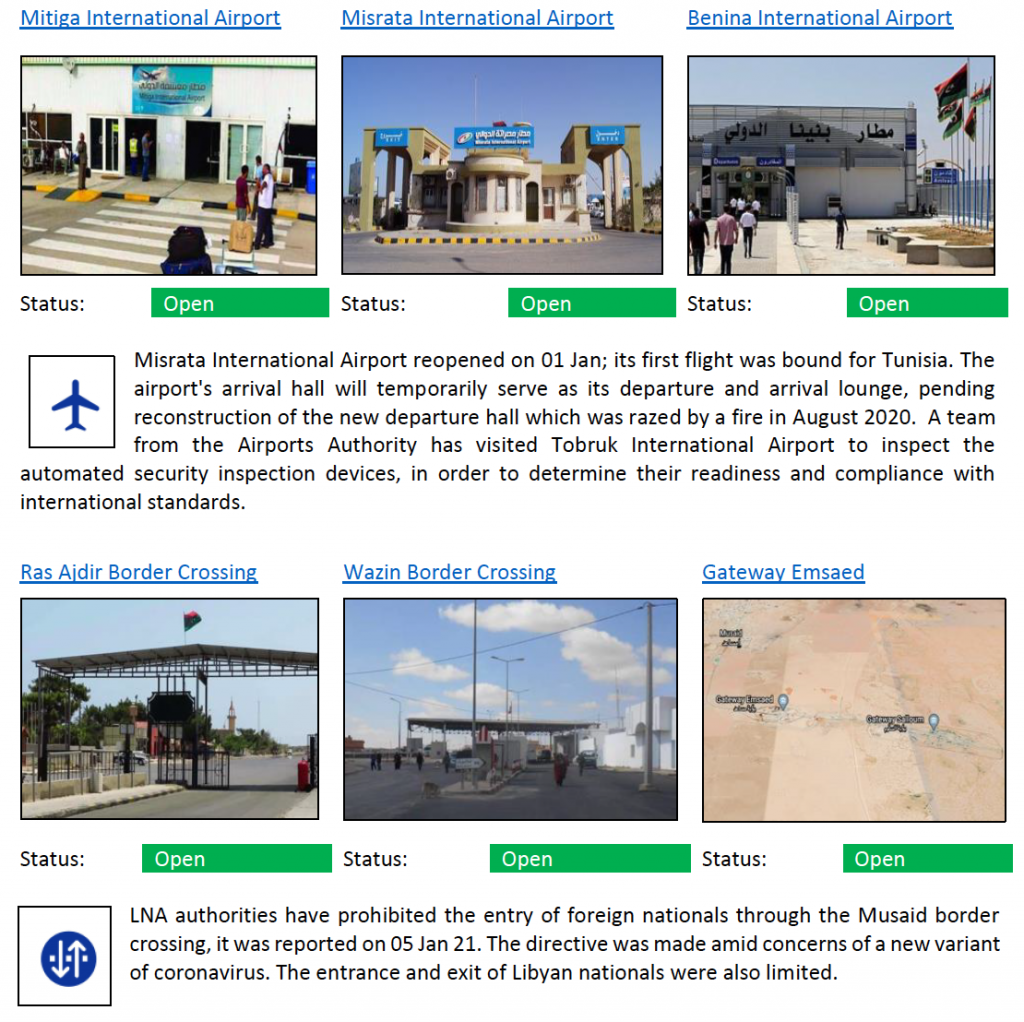
The National Centre for Disease Control announced the overall number of infections to 105,378, deaths 1,589 and recovered numbers of 81,237 as of 11 Jan 21.
